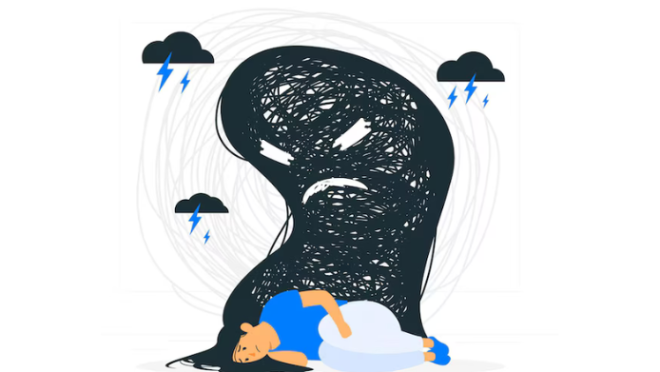Living with bipolar: What it feels like vs. what people think
Living with bipolar: What it feels like vs. what people think

“Why are you so dramatic?”
“You’re just moody; accept it.”
“Can’t you just control your emotions?”
These are the words people with bipolar disorder are used to hearing on a daily basis. In general, people believe bipolar means “mood swings”, but in reality, it’s more than this. Suppose you wake up and feel full of energy and ideas and even conquer the world. On the contrary, suddenly, all your energy drops down, not just feel sad, you feel completely broken inside, and there’s no hope at the end of the tunnel. This is what bipolar disorder looks like. There is an extreme level of emotional changes within a few days or a few minutes. Moreover, bipolar is not about “too happy” or “too sad”; it’s a daily battle against a brain that won’t settle.
In this article, let’s get to know someone who is facing bipolar disorder in real life and hear from a renowned psychiatrist in Bangladesh on people who get misconceptions about the condition.
What it feels like: A real story
Meet Luna (pseudonym), a 25-year-old living with Bipolar-ii
Luna was diagnosed with bipolar II a few years back. It is known as hypomania. She shared, “When I’m in the hypomanic phase, it feels like I will conquer the world, taking big decisions and big projects. Interestingly, I feel so much motivated while doing any task, and I do tasks efficiently without making any mistakes. All of a sudden, the high disappears. The depression hits like a big wave from the ocean. I can’t get out of my bed, the entire world seems completely dark, I feel like a failure, and there’s no hope. A complete loser who lost everything in life. However, it’s not just about being ‘sad” – it’s an unbelievable emptiness which is hard to explain.”
For the initial days, Luna tried to understand her emotions, but people surrounding her used to tag her as “moody”, “too sensitive”, “drama queen”, and “just seeking attention”. She also shared, “The moment I got to know that I’m bipolar diagnosed and shared it with my family and friends, their first reaction was like, ‘Oh, we all get mood swings, it’s normal, take it easy’, ‘You have mental health issues that mean you are psychotic’ and what not. It used to bother me a lot, but then I realised how little people understand bipolar.”
What people think: Myths vs. reality
Myth 1: Bipolar people are just moody
Reality: We all have ups and downs in our lives, sometimes we tend to get sad and sometimes super happy, but it doesn’t mean he/she is bipolar. Bipolar is not just about mood swings, it’s a neurological and psychological disorder, where affected people find it really hard to function.
Myth 2: They can control their mood swings if they try hard enough
Reality: Lots of people believe that if the affected person tries really hard, then they can control their mood swings easily. But it is not just about willpower; it’s caused a chemical imbalance in the brain, where it’s next to impossible to snap out of it easily.
Myth 3: People with bipolar disorder are dangerous
Reality: This is one of the most deadly stereotypes ever. The majority of bipolar disorder people are not violent, they are more likely to suffer internally.
Myth 4: These people are either super happy or extremely sad
Reality: That’s not true that a bipolar patient either always be super happy or extremely sad. Bipolar has many phases, where they have stable periods and can live a normal life like others, not necessarily constantly in a manic or depressive state.
What experts say: Psychiatric insights
To get a deeper insight, we spoke to Dr Kushal, the founder and lead psychiatrist of LifeSpring. Here’s what he had to say:
“Bipolar disorder is a mood disorder characterised by extreme mood shifts, ranging from deep depression to intense highs (mania). Without proper treatment, these episodes can last a long time, and they severely disrupt a person’s ability to function in daily life. In more severe cases, individuals may require hospitalisation to manage their symptoms.”
“In this disorder medicine works best for the patients, though with the right combination of therapy, medication, and lifestyle adjustments, people with bipolar disorder can lead fulfilling lives.”
He also emphasised the importance of mental health support: “The entire mental health is still stigmatised in our society; people think mood swings and bipolar disorder are the same, but these two are completely different. People need to understand that a bipolar patient can lead a healthy life as well.”
Understanding, not judging
Bipolar is not something that you can easily get over. If you know someone who is battling with this disorder, just simply listen to them without any judgement. On the other hand, if you are going through this disorder, then remember you are not alone, and help is available whenever you feel needed. Let’s replace judgement with empathy and compassion.
As Luna beautifully put it, “Now, bipolar has become part of my life, but it doesn’t define me at all. I’m not a burden to family and society; I’m strong, capable, and absolutely deserve happiness in life, just like everyone else.”
Lastly, mental health matters as much as physical health; every mental health issue requires proper treatment, but so-called stereotypes make it harder for people to seek help. We need to bridge the gap between misconceptions and proper knowledge about mental health to make a better world.


